Opinion
ADIEU MAMA CHRISTIANAH IBIRONKE OSHUNTOLA, CLASSIC “IYANIWURA”
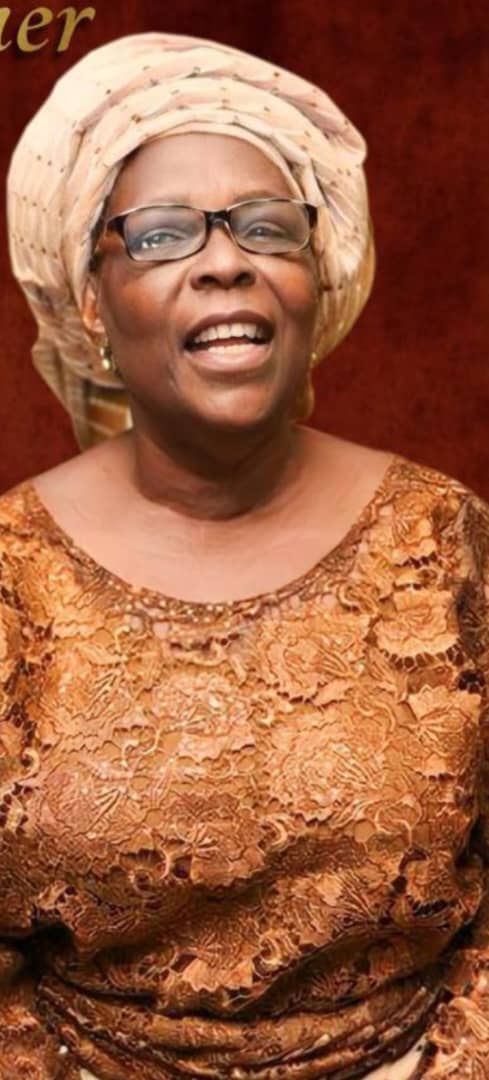
*By Tunde Olusunle*
Except you have the luxury of a precursor from your family, or you previously cultivated concrete amities, residential accommodation for a new employee deployed to work in Lagos can be a palpable challenge. I was recruited by the primordial Daily Times of Nigeria Plc in 1990 when Yemi Ogunbiyi, the charismatic, visionary and stamina-imbued former university scholar was chief executive of the organisation. My letter of employment was dated April 1990 but didn’t get to me until four months later. Even at that I had every cause to be thankful that it finally came. What if it got missing in the hands of the Nigerian Postal Service, (NIPOST) as was very plausible under the organisation’s virtual monopoly of mail distribution and courier services those days? I couldn’t wait to disengage from the services of the Kwara State government under which I had served in the four preceding years as a graduate teacher. So, Lagos, here I come!
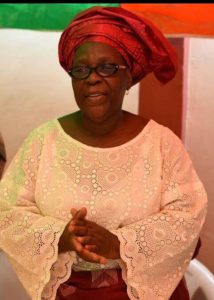
I was a quasi-nomad during the first few months of resumption at the Agidingbi, Ikeja, Lagos complex of the erstwhile Daily Times. I stayed with a cousin in *Idi-Araba* and subsequently with Gbenga Ayeni my classmate and brother from our first day in the university who was already settled in the Daily Times. He was in the Lagos bureau of the London-based *West Africa* magazine which was owned by the Daily Times of Nigeria Plc. Such was the foresight of the iconic Babatunde Jose, first indigenous chief executive of the Daily Times octopus. I remember asking Ayeni during one of our exchanges whether the organisation was not bothered about the welfare of its personnel. Cruelly but matter-of-factly, he told me that so long as I diligently filed your copies, it wouldn’t matter to the newspaper behemoth whether I slept beneath Lagos bridges!
I reached out to my father in Ilorin who once told me he had a friend and former colleague in Lagos. My father had worked with Livestock Feeds Ltd which was a subsidiary of Pfizer Nigeria Ltd, from the late 1960s to the late 1970s. He was variously manager at the Kaduna and Benin City plants. Within the period, he had met Pastor Femi Oshuntola and both men developed a close relationship. They had both retired and settled variously in Ilorin and Lagos. I couldn’t continue living in Lagos like a *Fulani* herdsman so my father graciously gave me a note to his friend in Lagos and asked me to locate his friend.
I traced Baba Oshuntola’s place in Ifako-Ijaiye one of those evenings. Fortuitously, I met him. I introduced myself and handed over the note from my father to him. He pored through the correspondence and shook hands with me. He immediately called out to Mama Oshuntola his wife, introduced me and handed me over to her. The “handing over ceremony” had barely been completed when Mama called Jide and Bankole the two boys in the family. “He is your elder brother,” Mama told them. “He is the son of one of your father’s very close friends and works with the Daily Times. He will stay in your room for as long as he is with us so please tidy up the place and make it available.” And that was how I was taken in and integrated into the Oshuntola family. I participated in the daily family morning devotions and attended the Foursquare Gospel Church which was the family’s denomination.
As media practitioners our official schedules can be unpredictable. Technology was not as advanced those days as different from the pampering it has availed us in today’s world where we can do almost everything with our handheld devices. As a reporter or writer, you had to physically go after the story, interview your subjects and attend events from which you could derive your reports or essays. You wrote in longhand, secretaries in the newsrooms typed your copies, you proofread them, and in some instances you planned the pages as part of the newspaper production process. The open-ended process ensured you couldn’t place your hands on a specific closing time from work. As a young man, I also sat out with friends from time to time to have a few drinks and also take in some culinary ancillaries. The Oshuntolas understood my situation very well and never for once did they chastise me or lock me out. Rather, Mama’s worry would be about if I had had a meal all day or not.
My wife, Funmi and I were still in courtship and she worked with “CSS Bookshop Press” in Lagos. I introduced her to the Oshuntolas and she was wholly and totally embraced. She was accredited to Mama Oshuntola’s kitchen and she took turns with the ladies in the family at the time, Yemisi, Bunmi and Opeyemi to prepare meals for the family. A trained and retired nurse like my own mother, Mama Oshuntola operated the “Golden Mother Clinic and Maternity Centre” within the complex of the family house which was established in 1985. It remains the go-to medical facility in the Ifako-Ijaiye district on account of its uncompromising professionalism. To be sure, the very first child with which my family was blessed, was born into Mama Oshuntola’s arms! I was out there chasing what to write about when my wife fell into labour. By this time we had secured an apartment a whistling distance from the Oshuntolas. Once they got to know that my wife was feeling the pangs of birth, Baba Oshuntola quickly drove to our home to pick up my wife. Such unparalleled affection by the Oshuntola clan.
The good news was conveyed to me via land telephone which was the vogue those days while I was attending a meeting of the editorial board in Daily Times. I promptly obtained permission to go see my folks. I went straight to Mama Oshuntola’s office on arrival to thank her for her motherly kindness. She referred me straightaway to the private ward my wife and newborn were. “Go to that room,” she ordered, “Greet your wife and kiss her, take the baby in your arms and pray together as a blessed family.” If that was touching, then wait for the next. After complying with her guidance I returned to her office to ask for our bill. “You have no bill to settle,” she shocked me. “But quickly get across to your mother in Ilorin and your mother-in-law in Ibadan. Mother and child remain under my watch until I see one of the grandmas.” That was how conscientiously motherly, how generous in spirit she was.
On one of my cross-country tours prospecting for business opportunities, I experienced more bowel movements than normal. My driver had to pull over from the road on many occasions. I had a message to deliver to the Oshuntolas as I got into Lagos on that occasion so their residence was my first port of call and I planned to proceed to the hotel thereafter. I was welcomed by Mama Oshuntola who promptly took me to her office. “You look dehydrated, pale and fatigued,” she said as she checked my vitals. I told her my experience on the trip. Unknown to me, I was suffering from food poisoning. She summoned one of the senior hospital staff and I was taken to a VIP ward. My wrist watch and telephone were taken and handed over to Bankole as a drip was set up for me. I was monitored all through the night. That is the classic Mama Oshuntola.
Christianah Ibironke Oshuntola (nee Odeneye) was born on new year’s day, January 1, 1946 in Ijebu-Awa, Ijebu-Igbo local government area of Ogun State. She had her foundational education in primary and secondary schools in her home community. She was briefly a teacher in Aperin near Ibadan before crossing over to the Catholic Hospital, Oke-Agbo, Ijebu-Igbo as an auxiliary nurse in 1963. Committed to the pursuit of her dream nursing career, she attended the Nursing School in Eleiyele, Ibadan and completed her practical training at the Ijebu-Igbo General Hospital. Upon qualifying as a nurse and duly certificated, she worked at the Ikeja General Hospital, Lagos, between 1969 and 1970. She proceeded to the Island Maternity Hospital, Lagos for her midwifery training from 1970 to 1971.
She obtained a one-year “out-station” experience at the Ejirin Health Centre, Epe and returned to the General Hospital, Ikeja in 1972 and stayed on till 1979. Mama Oshuntola desired to impact her community with her knowledge and experience in healthcare provision. The Ifako-Ijaiye area was just developing and the visionary Mama Oshuntola reckoned that residents of the emergent district could do with proximal medical facilities as against more distant ones. For six years beginning from 1979 therefore, she garnered requisite insights in managing a private health concern by working at County Hospital, Ogba, Ikeja. In March 1985, her dream for a self-owned clinic came to fruition with the setting up of “Golden Mother Clinic and Maternity.” That name is the authentication of who she truly was, a mother with a heart of gold. The outfit will be 40 years in 2025.
Mama got wedded to Pastor Olufemi Oshuntola in 1966 and the union has been blessed with five children and many grandchildren, biological and adopted. Baba Oshuntola passed in 2013 and was interned in Oyo his hometown in Oyo State. Mama Oshuntola was as diligent in service to God as she was in her profession as a lifesaver. She was well-known at the local, zonal and district levels of the Foursquare Gospel Church. She was President of the Foursquare Women International, (FWI) for six years and was ordained a “Deaconess” for her good works. She was further promoted to the rank of “Elder” as she ascended higher leadership levels in the mission. Within her local community, Mama Oshuntola was President of the “Ifako Progressive Union,” (IPU) for 10 years.
Mama turned 78 on Monday January 1, 2024 and passed on a few weeks later. Her rites of passage have been scheduled for Thursday March 21 and Friday March 22, 2024 in Lagos. She was an incredibly generous, affectionate and inspirational matriarch. We will all miss her warmth, candour and earthiness. May her soul rest in the bosom of the Lord.
*Tunde Olusunle, PhD, is a Fellow of the Association of Nigerian Authors, (FANA)*
Opinion
Right of Reply: THE PUNCH AND BUSYBODY BUSINESS

The recent declaration of a State of Emergency in Rivers State has triggered diverse commentaries from a wide range of Nigerians.
Almost everyone hailed the presidential proclamation because of the visible threat to law and order in the state at the time the action was taken. Of course, there were a few naysayers who read political meanings into an otherwise sincere and prompt intervention.
One such negative interpretation is the position taken by the Editorial Board of The Punch newspaper. In one of its editorials published on the matter, the national daily claimed that the entire crisis was caused by what it described as “the needless meddlesomeness in the governance of the state by its former governor and Tinubu’s Federal Capital Territory Minister, Nyesom Wike….” It is unfortunate that this narrative and others like it have become commonplace in the media space.
How did the Editorial Board of a reputable newspaper arrive at such a conclusion? Their claim that the Sole Administrator, Admiral Ibok Ete Ibas (rtd), has been acting a script purportedly written by the Minister of the Federal Capital Territory, Nyesom Wike, is also faulty and has no iota of truth.
They also faulted the sacking of all political appointees who served in Governor Siminalayi Fubara’s administration, insinuating that their replacements were drawn from Wike’s political camp. Again, nothing can be further from the truth.
Since his appointment as the Sole Administrator of Rivers State, Admiral Ibok Ete Ibas has been running the state with the abundant human resources available in the state and has not imported anybody from outside the state. Did the Editors of The Punch really expect him to run the administration with the politicians loyal to the suspended governor?
Do they not know that the crop of political appointees who served Fubara would have found it difficult to work with the Sole Administrator?
Certainly, they know the truth, but they have chosen to stoke the fire to generate more tensions in Rivers State.
Certain interests might have commissioned this editorial to cast aspersions on the Sole Administrator and raise doubts about his capacity to run the state.
It may also have been the handiwork of Wike’s political detractors, the man whom many politicians love to hate for no other reason than envy and jealousy.
We urge the Punch newspapers to seek a better mode of intervention in the political situation and not dwell on innuendos and unsubstantiated allegations against certain political actors in order to blackmail them.
Dr Ike Odogwu
Opinion
“Chief. Dr. Ekuogbe Akpodiete; A Philanthropist, Lawyer, and Statesman”
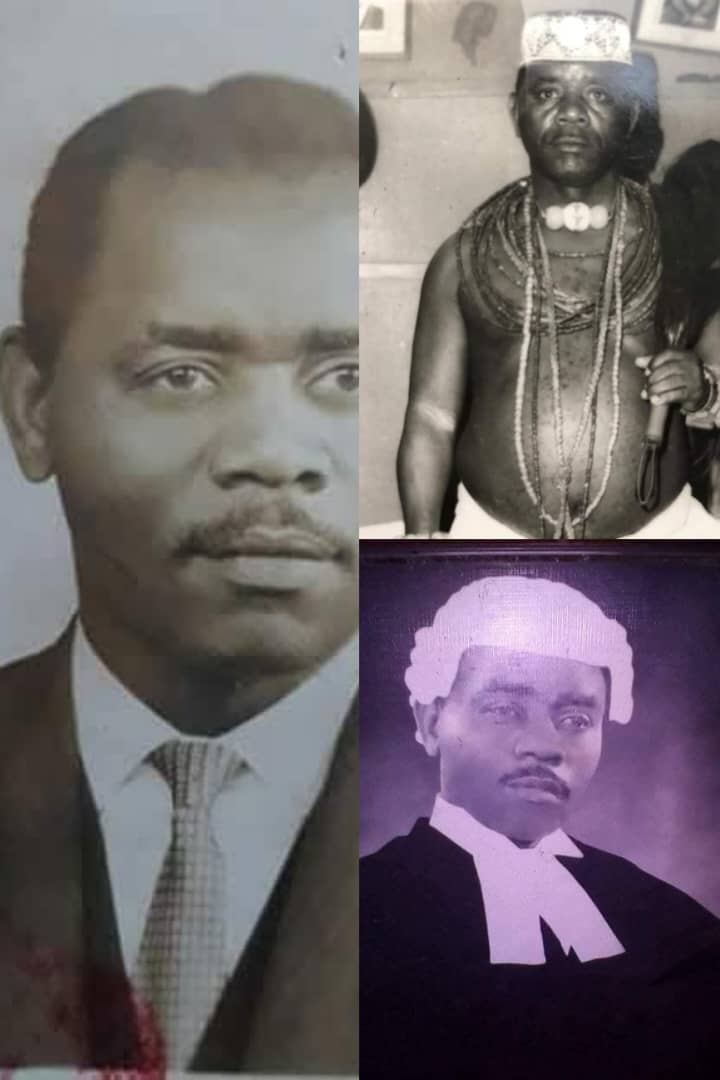
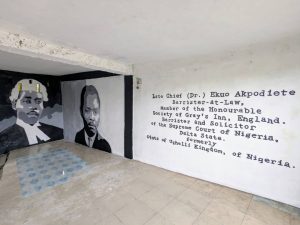
In a life of achievement, Chief Ekuogbe Akpodiete popularly called the Duke by his contemporaries in the UK was an assessment clerk, post office clerk, a court interpreter, an educationist, a business man, a political party chieftain, a Barrister and Solicitor, a Magistrate, the Otota (the Prime Minister) of Ughelli kingdom which is the highest traditional chieftaincy office that underpin the royal office of the Ovie of Ughelli Kingdom.
He was a trail blazer, a strict disciplinarian, a lover of people, and a philantropist. He saw to it that people lived in peace and happiness.
Born on the 4th of April, 1924, to parents cut from an industrious mould, Chief Ekuogbe Rowland Gregory Akpodiete took zealously to education that neither his mother Ughweriaka who was a trader, nor his father Akpodiete who was a farmer had.
He attended the Native Authority Primary School, Ughelli, and Enitona High School, Port Harcourt, for his secondary school education.
He thereafter had a brief teaching career in primary schools in Ofuoma near Ughelli, he worked as a process clerk in the then Sapele Township Department between 1950 and 1953, serving at the same time as an interpreter in the local courts.
He proceeded to the United Kingdom to seek the proverbial Golden Fleece where he worked and paid his way through, studying Law. He was admitted into the Honourable society of Gray’s Inn, England, in 1965, and shortly after, he returned home to Nigeria and attended the Nigerian Law School. He was called to the Nigerian Bar in 1966. He immediately started practice in Lagos. However, his practice in Lagos was regrettably abridged by the Nigerian Civil War, which drove him to his hometown Ughelli in 1967, where he continued to practise among his kith and kin as the first Legal Practitioner.
Chief Ekuogbe Akpodiete established himself in Ughelli. After the civil war, he served in the now defunct Mid-western State Judiciary from 1972 to 1975 as a Magistrate.
He was conferred with the chieftaincy title of Urhukperovie of Ughelli kingdom (the light of the King) by the then reigning Ovie of Ughelli, His Royal Highness Oharisi II of blessed memory in 1977.
In the quest for more knowledge, he went back to England for his Master’s degree in law (LL.M) and later a Ph.D. at the University of Warwick.
He was awarded an honourary doctorate degree (Ph.D) by Tenesse Christian University from the United States of America in 1991.
He became the Otota (the Prime Minister) of Ughelli Kingdom in 1986, an office he occupied until his demise on 9th April 1995.
Chief Ekuogbe Akpodiete was also politically involved. In the heady days of the Awolowo-led Unity Party of Nigeria, he was the party’s legal adviser in Ughelli and was on hand to assist during Chief Obafemi Awolowo’s campaign hosting in Ughelli and its environs.
In view of his love for people and entertainment, he established a popular cinema house, one of the first in Ughelli, known as REGA cinema, coined from his names, alongside an entertainment place called Unutakunu (people talk to people).
Chief Ekuogbe Akpodiete was blessed with wives and many children, grandchildren, and great grand children.
Mr. Olotu Akpodiete, PhD
Executive Director
Olotu & Ekuogbe Rowland Akpodiete foundation
Opinion
OF ABUJA INVESTMENT COMPANY, TAMUNO, WIKE, AND TINUBU’S “RENEWED HOPE” AGENDA
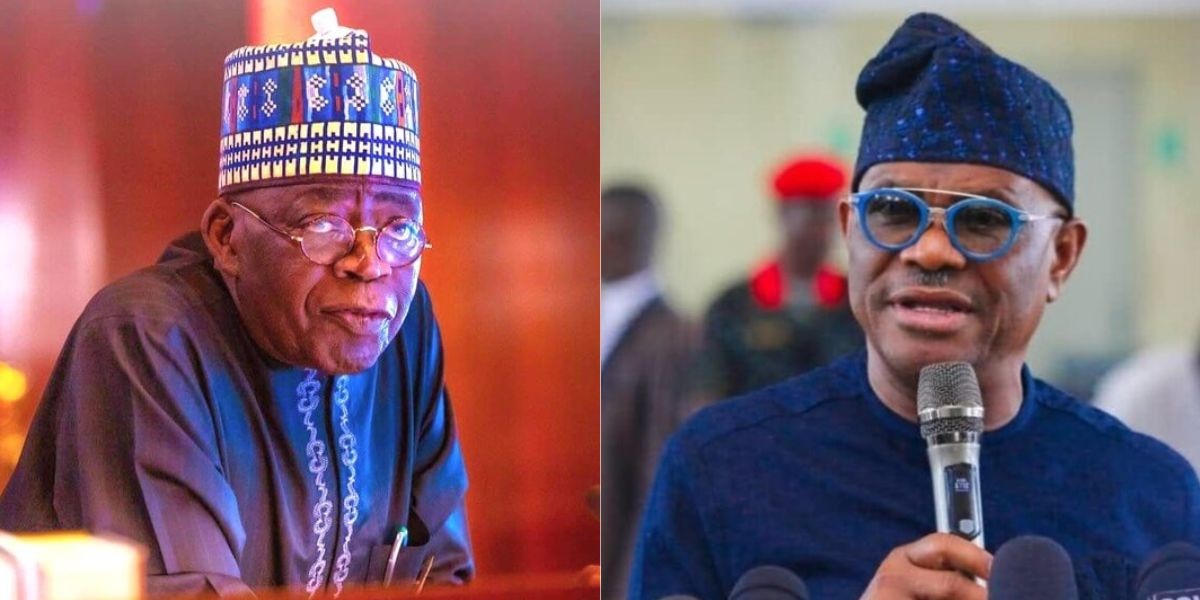
BY BOLAJI AFOLABI
Established in 1994 by the military administration of late General Sani Abacha, the Abuja Investments Company Limited, (AICL) is positioned as a government-owned investment enterprise charged with the responsibility to drive economic development in the federal capital territory. Its primary goal is to promote strategic investment and boost realistic economic growth of the FCT through different platforms and various approaches. Key functions of the AICL include Business Development; Investment and Development; Public-Private Partnership; Facility Management; and Infrastructure Development. The AICL has several subsidiaries and associates including Abuja Property Development Company, (APDC); Abuja Markets Management Limited, (AMML); Abuja Urban Mass Transport Company, (AUMTCO); Abuja Technology Village Free Zone; Abuja Film Village International Limited; PowerNoth/AICL Equipment Leasing Company. Others include Aso Savings and Loans PLC; Abuja Power Company Limited; Abuja Leasing Company; and Abuja Downtown Mall.
From 1994 till the exit of the military from national governance in 1999, the AICL recorded few achievements. During this period, the AUMTCO, and Aso Savings and Loans were established. With the dawn of democratic government in 1999, it was expected that the FCT, being an emerging federal capital will benefit hugely from the activities of the AICL. However, nothing much was achieved between 1999 and 2003. Somehow, Mallam Nasir El-Rufai, who administered the FCT from July 2003 to July 2007, was able to change the tide. Under his watch, the AICL came alive, recorded some measure of visibility and attracted positive public perception. Sadly, the AICL took a downward slide thereafter. None of the past ministers; Aliyu Modibbo Umar, Adamu Aliero, Bala Mohammed, and Muhammed Musa Bello provided the necessary political will and support for the AICL to maximally attain full potential. Indeed, it got worse between 2015 and May 2023 that many residents forgot that the company was still existing.
Many critical stakeholders were worried about the depth of neglect, static state, and institutional damage that the AICL was subjected to. Patterned after similar agencies in some developing nations, where measurable strides are achieved, the reverse happened with the AICL, that it became recurring causes of worries, and regrets to many people. Alhaji Aminu Mohammed, a former staff member of FCTA said, “it was shameful that the company remained largely dormant for many years.” Corroborating, Mr. Gilbert Gyang, an Abuja based investment expert declared, “the AICL, especially during the last administration was arguably comatose. It merely existed on paper, there was no visible investment initiative geared towards economic growth in the federal capital.” For Ms. Winifred Anosike, former banker, and development consultant, “it’s painful that the company was practically inactive for years. It was not only affecting economic growth in Abuja but impacted negatively on people and firms with result-driven initiatives who desired to contribute actively to the development of the capital city.”
With the emergence and subsequent inauguration of President Bola Tinubu on May 29, 2023, key players in the investment sector were hopeful that, the AICL may breathe again. Many hinged their thoughts on Tinubu’s background and experiences in accounting, financing, investment, governance, and leadership. Though with caveats; the choice of who minister’s FCT will be pivotal. Convinced that the AICL should be the “engine room” of economic growth and development of the capital city, many hoped that Tinubu will deploy the appropriate person to oversee the strategic ministry. Some stakeholders concluded that a wrong choice may consign the AICL into the “wilderness of inactivity” and likely extinction. Somehow, key players in the investment sector, at different fora and platforms were upbeat that Tinubu will pick the right person, who they hope will lead the way towards enabling the AICL to get back its mojo.
In August 2023, the deployment of Barrister Nyesom Ezenwo Wike as the Minister of the FCT; the 8th since Nigeria’s return to democratic government elicited public endorsement. Tinubu’s choice was largely celebrated by many stakeholders, as it renewed optimism about the prospects of AICL reviving its activities. Cognisant of Wike’s legendary achievements, as Rivers state Governor where he embarked on massive infrastructure development and more, turning the “Treasure Base” to the central investment hub in the South South zone, and emerging as second to Lagos state, many were confident that “light will come” to the AICL. A similar spate of enthusiasm and expectations was prevalent in and around the AICL. Many of the staff members also shared the positions.
The atmosphere at the Garki District offices of AICL on April 7, 2024 was ecstatic when news filtered in that Wike had appointed Dr. Maureen Tamuno as the Group Managing Director. A few hours later, it turned to frenzy after goggle checks were done by some staff members to have glimpses of her profile. Impressed, and satisfied with her multi-disciplinary academic background, and multi-faceted careers, her appointment was described as well-thought, and well-deserving. The unanimity of opinion was that, being a round peg in a round hole, the AICL will leverage on her far-reaching experiences and exposures as a former lawmaker, seasoned diplomat, public administrator, and boardroom strategist.
Aware and ready for the challenges ahead, many staff members were visibly excited when Tamuno assumed office the following day. Thus emerging as the first female chief executive of the AICL, since its 30 years of existence. Described as an accomplished technocrat with identifiable achievements in leadership, strategy, diplomacy, administration, and consulting, Tamuno, in her maiden speech confirmed the postulations of staff members. She emphasized her, “commitment to open-door policy to all staff, urging everyone to operate at the highest standard of transparency, confidentiality, accountability, and ethical business practices.” Continuing, she assured staff members that her, “strategic approach and consumer-centric philosophy are expected to propel the AICL to new heights of success.”
From reports, challenged by the enormity of the task ahead, conscious of the hugely untapped potential of the AICL, buoyed by the political support of Wike, and encouraged by the passion of the staff members, Tamuno literally hit the ground running. As a globally-recognized business development, management, and investment professional, she approached her assignment with iron-cast resolve, and the precision of a surgeon. First off, she embarked on critical reviews and overview of the AICL trajectory from inception; identified germane issues; evolved strategies for re-positioning the company; enunciated quick-wins, short-term, medium-term, and long-term measures for development, and some others. All these were geared towards delivering (or surpassing) the Ministerial mandate, and also ensuring that the AICL contributes its quota to Tinubu’s “Renewed Hope” agenda.
Indeed, it is imperative to note that the AICL, under the superintendent of Tamuno has literally drawn water out of rocks; which before now was largely unthinkable. That the soft-spoken and resourceful amazon; and her team were able to make noticeable impact within just one year, speaks volumes about her ingenuity, and indomitable spirit. In a broad sense, these achievements include encouraging economic diversification; expanding investment opportunities; exploring business and investment exchanges; deepening subsidiaries collaboration; and fostering diplomatic relationships.
In practical terms, the AICL, through some landmark initiatives has provided the platform for the promotion of trade and commerce, as well as economic growth and sustainable investment in the FCT. It is imperative to recall some of these laudable and trail-blazing projects. A few days back, the solar powered Farmers Market in Utako District and Kugbo International Market were commissioned by the FCT Minister of State, Dr. Mariya Mahmud. Speaking at the epoch making events, Mahmud eulogized Tamuno for completing the first-of-its-kind projects which, “would provide employment opportunities for a wide range of people in line with the “Renewed Hope” agenda.” While explaining that the projects are under the Public Private Partnership initiative of the AICL, Tamuno promised that, “under the Build Operate and Transfer (BOT) arrangement, the government will combine with the private sector to create profitable and sustainable public infrastructure. We identified Small and Medium Enterprises, (SMEs) as the backbone of any prosperous economy, because they create jobs that drive sustainable economic growth.” To underscore AICL’s commitment towards encouraging the informal sector, shops were gifted to some hardworking traders from all the six Area Councils of the FCT.
In October 2024, the AICL organized a two-day Abuja Business and Investment Summit with the theme: “Optimizing Investments Through Partnership.” The event, geared towards promoting investment opportunities in the FCT, was attended by major stakeholders in finance, investment, manufacturing, and other sectors. Participants opened new alliances, partnerships, and collaborations for new opportunities and innovations that will lead to micro and macro development. Tamuno, who by the way was one-time Nigeria’s Ambassador to Jamaica is leveraging on her diplomatic credentials and network to re-position the AICL. She is regularly engaging, and exploring investment opportunities with foreign countries through their diplomats in Nigeria. Through her participation at the maiden Nigeria-Kazakhstan Business Conference which was held in Abuja, in 2024, there are advanced plans for the establishment of city-to-city flights between both countries, as well as collaborations in agriculture, education, technology, logistics, and more.
Agreed, the journey is somewhat far but the AICL, under the new chief executive has shown unbridled commitment, and unflinching fervor in elevating the status, and relevance of the company towards engendering meaningful growth and development of the FCT. Tamuno has shown relentless drive and boundless energies towards justifying the confidence reposed in her by Wike. Posting an encouraging report-card in one year deserves commendations and encouragement. Mr. Olugbenga Okanlawon, an Abuja based public affairs analyst declared that, “she has shown that she is the right person for the job. Considering what the AICL has achieved in one year, it is clear that more grounds will be covered in terms of growth and development.” A frequent caller to the AICL who preferred anonymity said, “the GMD has brought a new lease of life to the place, and everybody has imbibed her can-do-it spirit with much pride, and belief.”
* BOLAJI AFOLABI, a Development Communications specialist was with the Office of Public Affairs, The Presidency, Abuja.
-

 News18 hours ago
News18 hours agoTears, anguish as Plateau Community buries 51 killed by bandits
-

 News18 hours ago
News18 hours agoSHOCKING! One month after giving birth, woman discovers another baby in her womb
-

 News16 hours ago
News16 hours agoCBEX: 60 fraudulent Ponzi scheme operators to avoid in Nigeria
-

 News18 hours ago
News18 hours agoAngry investors raid CBEX office, loot assets in Ibadan after digital Platform crash
-

 Politics18 hours ago
Politics18 hours agoIgbo Youths Set To Mobilize 5 Million Man-March In Support Of Tinubu, Kalu
-

 News18 hours ago
News18 hours ago‘Not something I’d wish on anyone’ — Melinda Gates opens up on divorce
-

 News14 hours ago
News14 hours agoAgbakoba questions inconsistencies in Natasha’s sexual harassment allegations against Akpabio
-
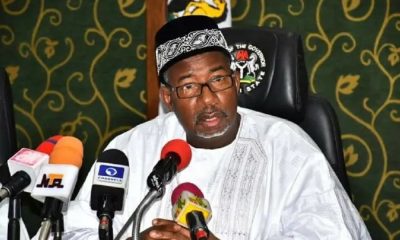
 Politics24 hours ago
Politics24 hours agoBauchi gov, Atiku’s sons in war of words over 2027 electoral race






